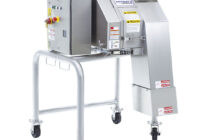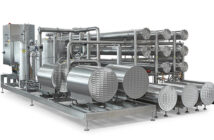Despite a shortage of bakers, only 25 percent of bakery products manufacturers hire apprentices. But, given the right support, the number of companies hiring apprentices could increase by more than 50 percent, a new study by the Industry Training Organisation for the baking, food and beverage manufacturing and engineering industries, Competenz, shows.
The most helpful set of incentives identified by the study into the baking and metal manufacturing sectors was around providing assistance with managing apprentices – specifically the provision of a pool of suitable candidates to recruit from, more help with supervising, and an online system to track apprentices in real time.
John Blakey, CEO of Competenz agrees: “There needs to be a high degree of support around assisting companies to fulfil the obligations of apprenticeships.”
Management support could encourage 47 percent of those companies hiring tradesmen or bakers but not hiring apprentices to be converted to apprentice hiring companies. A subsidy of $5,000 came decisively second as an incentive, encouraging just eight percent more companies to hire an apprentice. This percentage dropped if any conditions were placed on the subsidy, like specifying apprentice candidates must be recruited from young people receiving a benefit with low or no skills – an obstacle one too many for employers.
So although taking on an apprentice is a significant financial undertaking, it is the practical aspects of managing an apprentice for the three to four year term of the apprenticeship that are seen by companies as more daunting than the financial outlay.
The study also showed that a concerning 55 percent of bakery products manufacturers do not hire tradespeople at all. Companies not currently hiring a qualified baker cannot therefore hire an apprentice either.
“You can’t take on an apprentice if you haven’t got the qualification yourself,” says Mr Blakey.
“Otherwise the transfer of skills can’t effectively take place. It’s a situation that perpetuates the low wage, low skilled economy.”
And yet the benefits of up-skilling the baking sector are significant both for the sector as a whole and for individual companies.
“Skill converts immediately to productivity increases and profitable improvement. The smarter you work, the more efficient you are at doing things. And the less money is spent on the wage component of your costs,” Mr Blakey explains.
The message is clear. With the right supports, primarily around management, more baking companies would be likely to take on apprentices, enriching their own companies and building a more highly skilled, highly productive environment sector-wide.
“This research has made us aware of the issues facing companies regarding apprenticeships. It’s a great starting point for change,” Mr Blakey concludes.





























































































